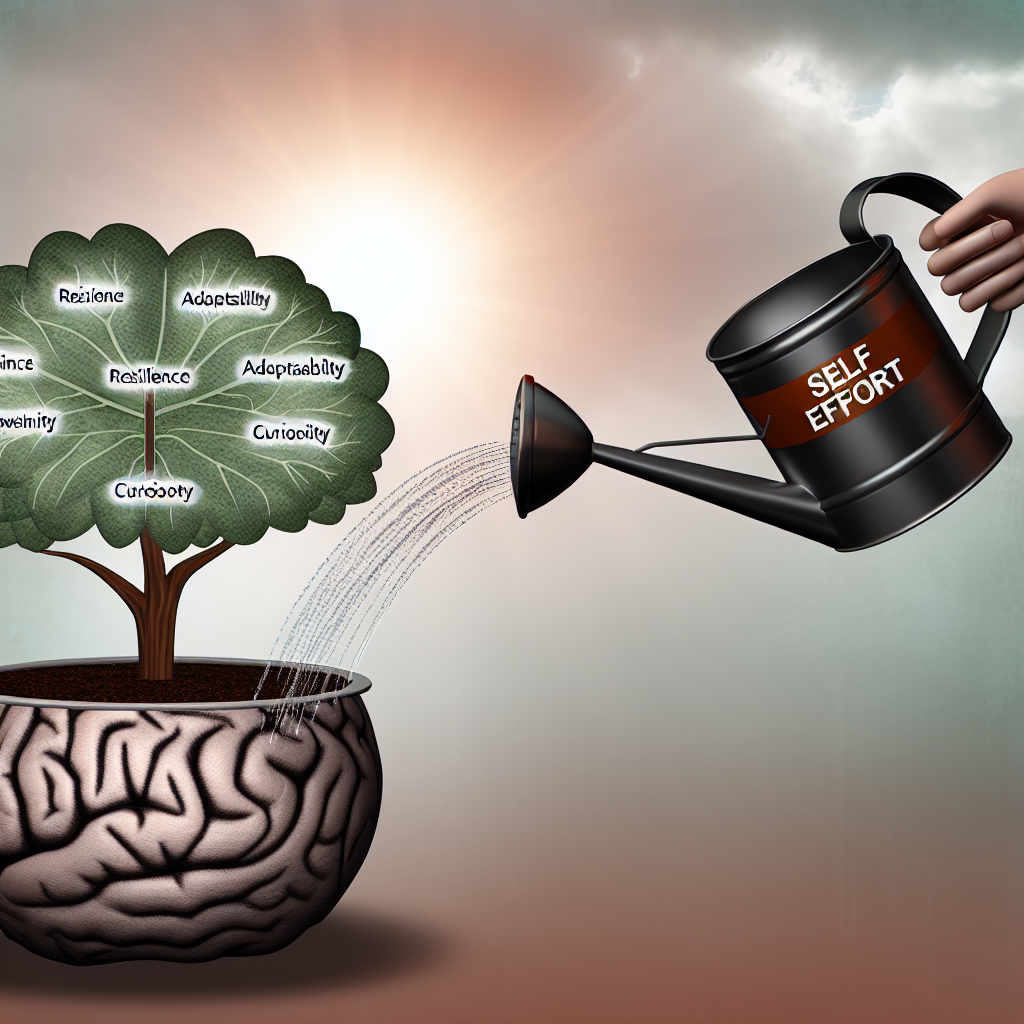Empowering Yourself: The Ultimate Steps to Develop a Growth-Oriented Mindset
Introduction
Imagine a world where every setback is simply a setup for a comeback, where challenges are viewed as opportunities, and failure is a stepping stone to success. This realm exists, and it’s called a growth-oriented mindset. Empowering yourself: the steps to develop a growth-oriented mindset isn’t just a catchy phrase; it’s a transformative journey that can redefine your approach to life and learning. In our fast-evolving society, the willingness and ability to adapt is more crucial than ever. A growth mindset not only enriches personal and professional lives but also fosters resilience and innovation. This article will guide you through the actionable steps required to empower yourself and cultivate this invaluable mindset.
Understanding the Growth-Oriented Mindset
What is a Growth Mindset?
A growth-oriented mindset, as coined by psychologist Carol Dweck, is the belief that abilities and intelligence can be developed through dedication, effort, and learning. Unlike a fixed mindset—which suggests that skills are inherent—people with a growth mindset thrive on challenges and view failures as opportunities for growth.
The Benefits of a Growth Mindset
Adopting this mindset offers numerous advantages:
| Benefit | Description |
|---|---|
| Resilience | Increased ability to bounce back from setbacks. |
| Enhanced Learning | Openness to feedback and learning opportunities. |
| Greater Creativity | Freedom to explore new ideas and innovative solutions. |
| Improved Performance | Higher likelihood to achieve goals through persistence and effort. |
| Better Relationships | More collaborative and constructive feedback dynamics. |
Steps to Empowering Yourself
To effectively empower yourself and develop a growth-oriented mindset, you can follow these crucial steps:
1. Embrace Challenges
Why Challenges Matter
When you encounter a challenge, consider it a chance to improve. Embracing difficulties encourages you to push your limits, paving the way for growth.
Case Study: J.K. Rowling
J.K. Rowling faced numerous rejections before publishing "Harry Potter." Instead of giving up, she embraced these challenges, ultimately building a literary empire. Her journey exemplifies resilience through a growth-oriented mindset.
2. Learn from Criticism
Constructive Feedback: Your Best Friend
Criticism can sting, but it can also be a goldmine for self-improvement. Seek feedback actively.
Research shows that individuals who view constructive criticism as a tool for learning develop more rapidly.
3. Cultivate Curiosity
The Power of Inquiry
Curiosity drives learning. Make it a habit to ask questions, explore new ideas, and seek knowledge outside your comfort zone.
Tip: Set a goal to learn something new every month, whether it’s related to your profession or a completely new interest.
4. Set Realistic Goals
The Roadmap to Success
Setting achievable yet challenging goals gives you something to strive for. Break larger goals down into manageable tasks.
| Goal Type | Description |
|---|---|
| Short-term Goals | Focus on immediate achievements, like finishing a book or learning a new skill. |
| Long-term Goals | Aim for overarching life goals, such as career aspirations or personal growth milestones. |
5. Celebrate Small Wins
Acknowledging Progress
Taking time to celebrate your achievements, no matter how small, reinforces your growth-oriented mindset. This practice nurtures motivation and commitment to your journey.
6. Surround Yourself with Growth-Oriented People
The Circle of Influence
Your environment shapes your mindset. Surround yourself with individuals who challenge and inspire you. Engaging with like-minded people can fuel your own growth journey.
Case Study: The Power of Community
Consider various startup communities where entrepreneurs share their stories of trial and error. These environments foster learning and resilience.
7. Stay Persistent
The Path of Perseverance
Persistence is key. Even when faced with setbacks, maintain your focus on your goals. Research indicates that persistence dramatically increases success rates.
8. Adapt a Positive Attitude
The Impact of Positivity
A positive mindset creates a fertile ground for growth. Practice gratitude and maintain a hopeful outlook to encourage personal development.
The Science Behind a Growth-Oriented Mindset
Understanding the underlying psychology strengthens your commitment to empowering yourself. According to studies, the brain’s neuroplasticity allows it to grow and change in response to learning and experience. This intrinsic capacity aligns with the principles of a growth mindset, demonstrating that your abilities can expand over time.
The Neuroplasticity Paradigm
Neuroplasticity refers to the brain’s ability to reorganize itself by forming new neural connections. This adaptability is crucial for fostering a growth-oriented mindset.
Charting Your Growth Journey
| Neural Connection Type | Description |
|---|---|
| New Connections | Created when learning new information or skills. |
| Strengthened Connections | Reinforced through practice and application of knowledge. |
Conclusion
Empowering yourself: the steps to develop a growth-oriented mindset is a journey that requires effort, commitment, and resilience. By embracing challenges, learning from criticism, cultivating curiosity, setting realistic goals, celebrating small wins, surrounding yourself with the right people, staying persistent, and maintaining a positive attitude, you can unlock your potential.
As you embark on this journey, remember that growth is not a destination but a lifelong process. Every step is a step forward. Let this mindset guide your path towards a fulfilling and successful life.
FAQs
1. What is the first step to developing a growth-oriented mindset?
Start by embracing challenges and viewing them as opportunities for growth rather than obstacles.
2. How can I learn to accept criticism better?
Practice mindfulness and focus on the constructive aspects of feedback. Remind yourself that criticism is a tool for improvement.
3. Can a growth mindset really improve my career?
Absolutely. A growth mindset encourages continuous learning, making you more adaptable and innovative in your field.
4. How can I measure my growth over time?
Keep a journal of your challenges, goals, and successes. Reflecting regularly will highlight your progress and areas for improvement.
5. Is it ever too late to develop a growth mindset?
It’s never too late! At any stage of life, you can begin adopting habits that foster a growth-oriented mindset.
This journey awaits you—start today, empower yourself, and transform your life with a growth-oriented mindset!

